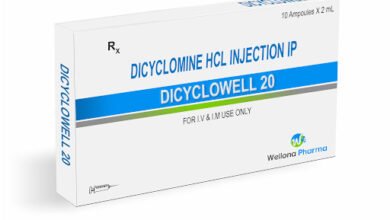Who Is Not A Good Candidate For Ketamine Therapy?

Nowadays, ketamine therapy has gained significant popularity for the treatment of mental health issues like anxiety, depression, or post-traumatic stress disorder (PTSD). According to a study, around 8.3% of the adult population of the U.S. have at least one symptom of depression. After diagnosis, most people find this treatment beneficial in providing relief and improving overall health. However, it is essential to know that this kind of therapy is not appropriate for everyone. If you are planning to experience this therapy, you may wonder, “Who is not a good candidate for ketamine therapy?” Well, Those are people with high blood pressure, heart conditions, substance abuse history, or using particular medications. Let’s explore the article and thoroughly understand who should not consider ketamine therapy and why. Also, learn the benefits of this treatment. But first, know what ketamine therapy is and how it works. Read on!
Also Read: Post Traumatic Stress Disorder (PTSD): Everything You Should Know
What Is Ketamine Therapy?
Ketamine therapy is a medication-assisted treatment that involves the use of low-dose ketamine that is infused into the body under medical guidance. This kind of therapy has the potential to deliver quick relief from different mental health problems. It involves a series of sessions in which every session continues for approximately 40 minutes. The session number might differ depending on the condition and progress of the person’s health. During the therapy, healthcare providers closely monitor the psychological issues of the patients to ensure their safety and overall well-being. The low-dose ketamine is given intravenously, allowing for accurate dosing and instant results. This therapy is not a multipurpose solution. The treatment plan is customized according to the health needs and goals of the patients. Doctors check the health condition, medical history, and previous treatment outcomes to decide the suitable approach.
How Does Ketamine Therapy Work?
It is believed that during therapy, ketamine helps form a new neural connection inside the brain, which improves mood and prevents the symptoms of psychological disorders. In addition, this drug has shown some anti-inflammatory effects that positively impact mental health. According to a study, ketamine can alter glutamate, an important neurotransmitter that has antidepressant effects. Ketamine targets the N-methyl-D-aspartate (NMDA) receptor and regulates glutamate production which influences different neural circuits that help in emotion processing and mood enhancement. Moreover, being anti-inflammatory, ketamine also benefits from its therapeutic effects. Among the causes of some mental disorders, chronic inflammation is also one. Here, ketamine can prevent inflammation by reducing the related symptoms and improving overall health. While there are no such extensive studies yet, some research has demonstrated that ketamine therapy shows favorable results due to its high efficacy and long-term effectiveness. The below section lists its benefits!
Also Read: Ketamine Infusions: How It Works And What Are The Benefits
Benefits Of Ketamine Therapy
Ketamine therapy has shown significant and quick progress in the treatment of depressive disorders for many people. The following are the benefits, this therapy offers to treat a variety of psychological conditions:
- Give relief from mood disorders, treatment-resistant depression, and suicidal thoughts.
- Treat Complex regional pain syndrome (CRPS) and chronic pain.
- Help with symptoms of neuropathy like pain, tingling, and numbness.
- Reduce the symptoms of PTSD and anxiety.
- Boosts up motivation and self-esteem.
- Enhance mood and overall well-being.
- Improve emotional openness and emotional intelligence.
- Prevent fibromyalgia.
- Improve sleep patterns.
- Relieve migraine pain.
Who Is Not A Good Candidate For Ketamine Therapy?
Ketamine therapy has shown countless positive results in some people with deeply rooted mental health issues. However, this potent treatment is not suitable for everyone. It still has some limitations. Therefore, it is essential to know the contraindications for someone who is not a good candidate for ketamine therapy. The following are the individuals falling under this category:
People With High Blood pressure
Though ketamine therapy is safe and effective for many people, it can show adverse outcomes if a person has high blood pressure issues. Study says this kind of treatment can increase blood pressure and heart rate levels, which can be riskier for health. The reason is ketamine, being an active drug, can cause blood pressure level spikes while actively in action. The elevated blood pressure in people who are already struggling with uncontrollable high blood pressure can show some adverse symptoms such as sudden cardiac arrest and stroke. While the blood pressure of the people who are a good candidate for ketamine therapy is checked throughout the procedure, those who already suffer from high blood pressure levels may show some complications. Thus, they may not be considered the right fit for this therapy.
Also Read: High Blood Pressure Symptoms: Knowing the ‘Silent Killer’
People With Heart Diseases
As explained, ketamine therapy can be unfavorable for patients who already have high blood pressure levels as it can put their health at risk. This kind of therapy can also be dangerous for individuals struggling with heart disorders such as congestive heart failure, arrhythmias, previous heart attacks, and arterial diseases. Though ketamine therapy can be a great aid in reducing the symptoms of mental health problems like depression, it can not be utilized to treat people with heart complications as they are more vulnerable to risks. This is not something that the doctors will be ready to do. So, healthcare providers suggest people with heart disorders give preference to other treatment options to manage their mental health issues.
People With Substance Abuse History
People with a medical history of particular substance abuse or dependence, for instance, drug addiction or alcohol dependence, can not be the right candidate for ketamine therapy. Though ketamine is generally believed as an addictive drug, a person who is already diagnosed with an addiction history of some substance is at more risk of misusing it. Ketamine, for many years, has been used as many addictive drugs as a party drug and nasal spray, often offered for sale in UN-rated bottles. Some concerns are noticed with ketamine therapy that although this kind of treatment benefits some individuals, it can induce a feeling of euphoria that can likely develop a sense of addiction in some people. It also boosts the drug tolerance ability of those people. Therefore, these individuals are not considered a right fit for this therapy.
People With Psychiatric Disorders
People struggling with manic episodes or psychosis can not be a right fit for ketamine therapy. Psychosis is marked by a mental health condition in which a person loses a connection with reality. This challenges those people to understand what’s genuine and what’s not. These psychic disorders may hinder the safety and effectiveness of this therapy and can put the health of those people at risk. The complications occur as the ketamine treatment can induce dissociative effects and hallucinations, making the symptoms of psychotic disorders worse. As a result, it can lead to high impulsive behavior and agitation.
People Using Specific Medications
Ketamine can have a negative interaction with some medications. According to research, the pharmacodynamic interactions between psychiatric drugs and ketamine show some results which are:
- Lamotrigine medications may reduce the effects of ketamine.
- Benzodiazepines lower the duration of ketamine’s effect on psychological symptoms of depression.
- Antipsychotic medicines like clozapine, haloperidol, and risperidone might react to ketamine, but the available evidence has low quality which is still uncertain.
- Ketamine can lead to a high state of sedation if taken with certain sedatives like opioids, antiseizure drugs, and some migraine pills.
So, if you are considering ketamine therapy, discuss your medical history and medication regimen with your doctor. This will help the healthcare providers measure potential interactions with this therapy to plan another safe and effective treatment.
Pregnant And Breastfeeding Women
Due to the shortage of proven evidence, ketamine therapy is not suitable during pregnancy and breastfeeding phase. It is advised to avoid this kind of therapy when a woman is pregnant or breastfeeding a baby. Studies are still going on to analyze the possible risks of ketamine therapy on the growing fetus or nursing newborn. So, doctors suggest exploring other alternative options if pregnant and breastfeeding women are struggling with some mental health issues. Healthcare providers generally advise to avoid using over-the-counter medications or other medicines that are inappropriate during pregnancy. Ketamine-infused drugs can enter the bloodstream of the mother, which can adversely impact the health of a developing fetus or newborn.
Who Is Eligible For Ketamine Therapy?
As we have answered above, who is not a good candidate for ketamine therapy? now we also must know who is eligible for the same. So to determine whether you are eligible for ketamine therapy, the healthcare providers will thoroughly examine your medical history and overall health condition. The eligibility may be confirmed if:
- You have undergone other therapies like TMS (Transcranial Magnetic Stimulation) or CBT (Cognitive Behavioral Therapy).
- Your current symptoms of psychological disorders are severe and prevent the full recovery of your health.
- You have already used various medications and found no relief from your symptoms.
- The current medications you are taking have suddenly stopped showing any effects.
- You do not have any of the ketamine contraindications that are listed above in this article.
Ketamine Therapy Side Effects
With every drug, some mild side effects can occur. People who undergo ketamine therapy might experience some potential side effects. According to research, around 6%-12% of people have shown an emergence phenomenon after the administration of ketamine. The standard associated reactions are:
- Blurred vision.
- Upset stomach.
- It increases blood pressure.
- Drowsiness.
- Headache.
- Change in perception.
- A feeling of floating, which some find relaxing.
- Anxiety or agitation.
- Confusion.
All these side effects subsided within hours but sometimes can be long-lasting. So, people who want to experience ketamine therapy have to prepare themselves adequately.
Also Read: Is Ketamine Addictive: Symtpoms, Works And Side Effects
Summing Up
We learn in this article who is not a good candidate for ketamine therapy. We also learned Ketamine therapy benefits certain mental health disorders that are resistant to other kinds of treatments. But before choosing this therapy, it is essential to consider its drawbacks. People with uncontrollable medical issues, substance use disorders, use of certain medications, psychological disorders, and pregnancy or breastfeeding women may experience some limitations and side effects. So, if you have some of the disorders mentioned above and want to undergo ketamine therapy, in that case, managing your medical conditions first by consulting a licensed doctor is recommended. Once the physician examines your medical history and health condition and gives approval, then only you can consider going for ketamine therapy.
Frequently Asked Questions
Does ketamine therapy get you high?
If the ketamine infusion is performed under medical supervision and controlled environment, it does not get you high. However, its recreational use can lead to euphoria, and the outcomes can be significant dependence and over-addiction.
How old do you have to be for ketamine therapy?
The ketamine treatment has been profitable for adults. However, some studies also show that this therapy is promising for adolescents and teenagers with severe mental conditions.
What disqualifies you from ketamine therapy?
High blood pressure readings, uncontrollable heart disorders, misuse of substances, or chronic mental conditions can disqualify you from ketamine therapy. Breastfeeding and pregnant women are also prohibited from this treatment.
Is ketamine therapy safe?
Yes, ketamine therapy is considered safe. Under skillful medical guidance, this treatment can offer healthy and significant benefits for people with mental health disorders.
Source link
#Good #Candidate #Ketamine #Therapy



